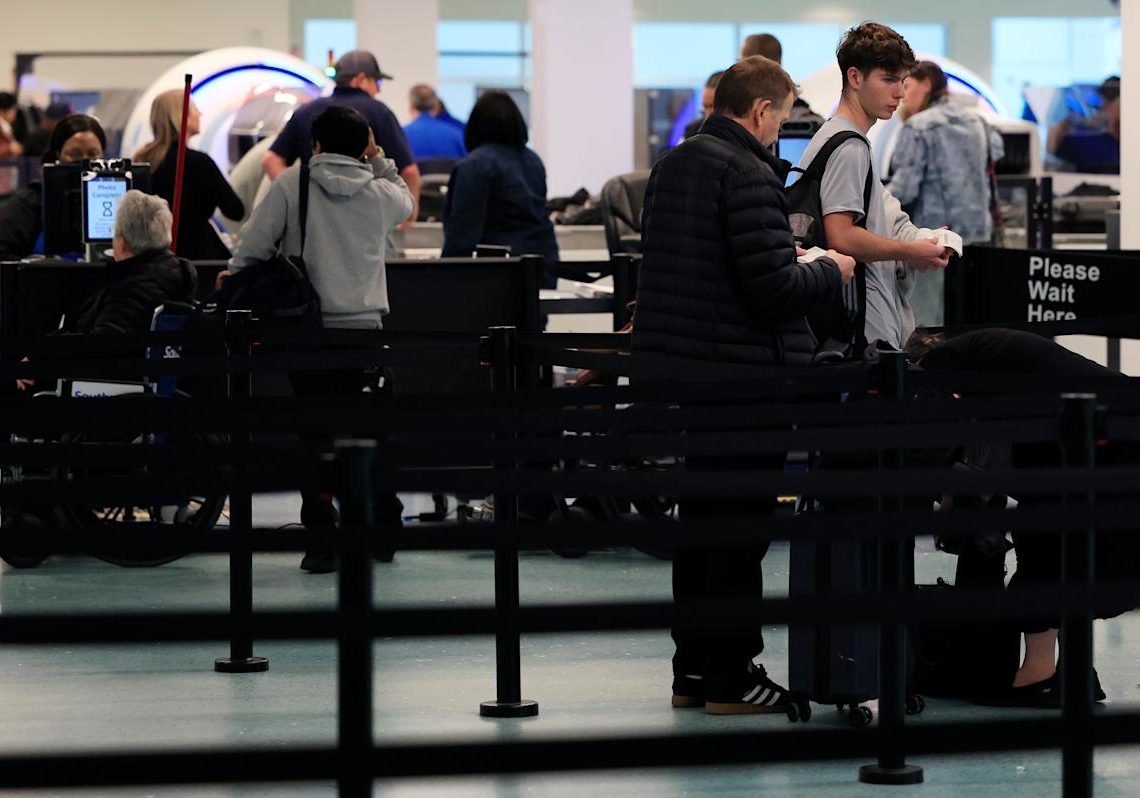The REAL ID enforcement deadline will take effect in less than a week, following years of delays.
Adults will need a compliant driver’s license or ID to board a commercial domestic flight and enter certain other facilities on May 7 – though travelers can continue to use accepted alternatives like a passport.
The roughly 20-year path to implementation stemming from the 2005 REAL ID Act has been bumpy, marked at times by resistance from states tasked with issuing the documentation. Even after the law was passed, more than a dozen states opposed REAL ID, saying it came with high administration costs and would pose privacy threats. Advocacy groups have raised similar concerns.
Here’s what to know:
What are the privacy concerns around REAL ID?
Alexis Hancock, Director of Engineering at the nonprofit Electronic Frontier Foundation, said the program “pushes for regimes that strip privacy from everyone and further marginalize undocumented people.”
“While Real ID-compliant identification will soon be required to enter TSA checkpoints, there is no reason this can’t and won’t expand to include additional ‘official purposes’ with federal entities in the future,” she told USA TODAY in an emailed statement.
Because identifying information is currently stored at the state level, Hancock added that the program’s unified standards could make it “even easier” to transfer sensitive information over state lines, such as when state DMVs have reportedly sold data to third parties.
The American Civil Liberties Union has similarly said the law would facilitate data tracking on individuals if fully implemented. “By definitively turning driver’s licenses into a form of national identity documents, Real ID would have a tremendously destructive impact on privacy,” the organization’s website reads.
Jay Stanley, a senior policy analyst with the American Civil Liberties Union, told USA TODAY that “there have long been privacy concerns about having standardized identity systems.”
“Partly because it still hasn’t completely been put into effect, and also because it was put into effect so slowly, some of the things that we were worried about have not yet happened,” he said in an interview. He also noted the “real battle” today is around digital IDs and their associated risks.
A Transportation Security Administration spokesperson told USA TODAY that REAL ID is a “national set of minimum standards” rather than a national ID card and does not create a federal driver’s license information database.
“Each state jurisdiction continues to issue its own unique license, maintains its own records and controls who gets access to those records and under what circumstances,” the spokesperson said in an emailed statement. “The purpose of REAL ID is to make state issued identity documents accepted by Federal agencies for official purposes more consistent and secure.”
Nathan Diller is a consumer travel reporter for USA TODAY based in Nashville. You can reach him at [email protected].
This article originally appeared on USA TODAY: REAL ID concerns: Privacy advocates say government could be watching
The post From driver’s license to digital dossier? Why some are worried about REAL ID. appeared first on USA TODAY.




